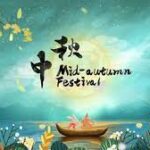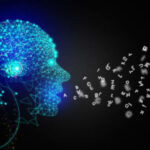This Article is False: The Liar’s Paradox – Lauren S
During senior debating a few weeks ago, when we were meant to be coming up with ideas for a debate about the clocktower, I got distracted by Eri S and Luke U, as we delved deep into philosophy and the liar’s paradox. Having had my brain well and truly fried by the conversation – and having to cite why ghosts and ghouls would not be effected by the lack of clocktower chimes within the debate, it is only this past week that I have been able to do my own research.
To begin with, a paradox is a statement that contradicts itself, and the liar’s paradox focuses around a statement, such as ‘this statement is a lie’. It sounds simple, doesn’t it? BUT, if the statement is true, then it must be a lie, and if it is a lie, then it must be true. Follow me so far? No matter which way you look at it, you get caught in a logical loop, one that is impossible to resolve.
Maybe re-read that a couple of times and discuss it with your friends if you are still confused.
To give a real life example, if you have a friend who always tells lies, and they were to acknowledge this by saying ‘I always tell lies’ – well, in that moment, they are telling the truth, so they can’t possibly always tell lies.
It complicated, I know.
The liar’s paradox has been discussed throughout time, but most notably during the classical period, being referenced by the likes of Aristotle and Cicero. However, it is often attributed to
Epimenides, a Cretan Philosopher, in about 600 BC, who made the statement that ‘All Cretans are liars’ – this itself, whilst not the logical equilvilent of the modern Liar’s Paradox – does deal with the same themes: Epimenides is himself a Cretan, so what he says is true. But, if his statement is true, then he himself cannot be honest, and thus the circle of proving that Epimenides and the Cretans to be truthful and untruthful ensues.
Back to the modern day, and the Liar’s Paradox remains important for challenging fundamental concepts, such as our own understanding of truth and meaning, but it also serves as a key educational tool, for teaching critical thinking. It still sparks widespread philosophical debate and has been used to aid computer science, as well as the development of AI.
So, do you think I’m telling the truth, or is this article false?















Post Comment
You must be logged in to post a comment.